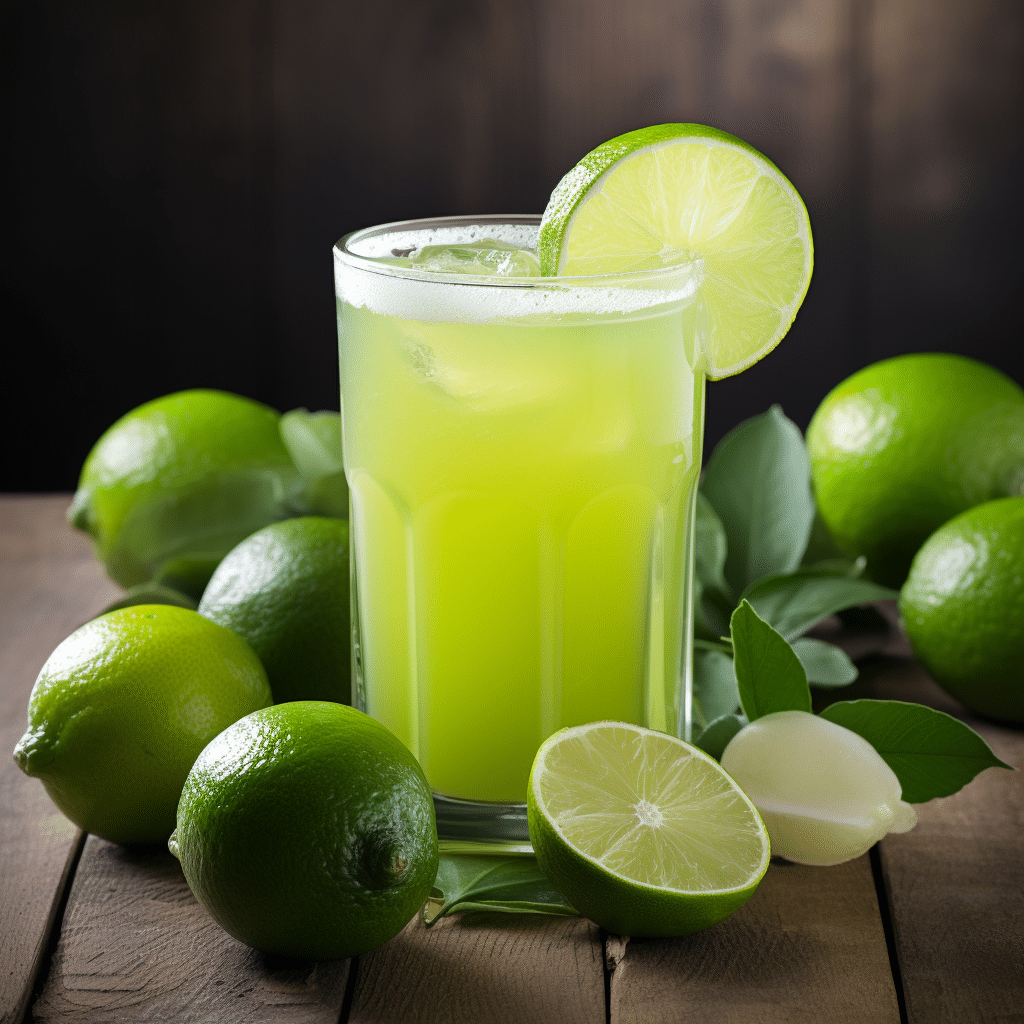
Does Lime Juice Go Bad? Storage and Benefits
Lime is a small, round citrus fruit that is green in color and contains acidic juice vesicles. Its juice is sour and is usually used to flavor dishes and drinks.
There are several varieties of lime including; sweet lime, limesquat, makrut lime, Persian lime, and wild lime. Persian lime is most popular in the US. They are a rich source of Vitamin C. and antioxidants. Limes are closely related to lemons though they are more bitter compared to lemons.

Does Lime Juice Go Bad?
Lime juice can go bad. Freshly squeezed lime juice should be consumed within three days, with the bottled one having a longer shelf life. You can make juice at home or buy fresh, bottled juice at the stores with no added preservatives. The factory-produced lime juice has added preservatives which prolongs its shelf life.
How Long Does It Take For Lime Juice To Go Bad?
Freshly squeezed home juice could take up to 3 days before it goes bad. It contains no preservatives, and thus the acidic nature deteriorates fast.
For commercially manufactured lime juice, their shelf life is longer. The manufacturers pasteurize the juice to destroy bacteria and fungi. The preservatives are added, and the packaging prolongs shelf life too. Commercially purchased lime can be stored at room temperature for 6 months without going bad.
After opening, this juice can be refrigerated for 6 months. If stored at room temperature, the manufacturer will give a time within which it should be consumed. Some brands last longer than others. Due to acidity, lime juice can go well past the sell-by date without going bad.
How Can You Tell Your Lime Juice Has Gone Bad?
You can tell when lime juice is bad by observing, smelling, and tasting it. Spoilt juice may alter the color from clear white. It could also have a pungent odor and appear moldy. The bad juice will taste bitter while the fresh one has a sweet-sour taste. Freshly squeezed juice that has been stored for more than 3 days might be bad. Pasteurized lime may be okay for 2 to 3 months after the best before the date when refrigerated. If you suspect the juice is bad, it’s advisable to discard it.
How To Store Lime Juice
You could either freeze or refrigerate fresh juice. For refrigeration, pour it into a transparent container and place it in the fridge. To freeze, pour it into an ice tray and put it in a plastic bag before freezing. You could also pour it into a mason jar and freeze it. Plastic containers can expand in the freezer and end up getting damaged. Packaged juice should be stored in a cool, dry place, free from direct light.
Nutrition Facts Of Lime Juice
Limes are a good source of Vitamin C. They are sodium, fat, and cholesterol-free. One serving of 31 grams of unsweetened homemade lime contains; Calories- of 7.8, Carbohydrates-2.6 gm, Vitamin C-9.3mg, and Water- of 28.14 gm. Other traces of nutrients are; potassium, magnesium, copper, Folate, Vitamin B6, and thiamin. The nutrients may differ in sweetened, commercially manufactured juice.
Health Benefits Of Lime Juice
Lime juice provides several benefits;
- It may boost immunity. Vitamin C in lime juice helps the production of white blood cells. These cells strengthen the immune system.
- Vitamin C stimulates the production of collagen, which aids in wound recovery. Taking lime juice might help in quicker healing of wounds. Vitamin C has anti-inflammatory properties that help control arthritis and rheumatism. It could also help reduce asthmatic attacks.
- Vitamin C helps in reducing the effects of aging such as wrinkles. Its antioxidant properties help fight free radicals that cause premature aging.
- May lower the risk of some cancers. Flavonoids found in lime juice have antioxidants that effectively combat cancer regression in cancers, such as colon, throat, pancreas, and colon cancers.
- May promote good heart health. Lime juice does not contain cholesterol, and consuming it often could help fight the bad cholesterol in the body and thus lower high blood pressure.
- It may prevent kidney stones. Lime juice contains Vitamin C and acid that can help break and prevent the formation of some kidney stones.
- It Might support weight loss. Lime contains bioactive compounds that could help in weight control. Water consumption is also an effective way of controlling weight. Instead of drinking plain water, you could include lime juice in your diet plan.
Side effects of Lime juice
Acid Reflux
Lime is acidic and may trigger GERD-gastroesophageal reflux disorder. Gerd is a condition that develops when the intestinal lining is irritated by acidic or spicy foods. Thinning of the lining of the small intestines could lead to peptic ulcers.
Tooth Decay
Lime juice may erode the enamel due to its acidic nature. To avoid excess damage to your teeth, brush or floss after taking lime juice. You could also consider using a straw to reduce exposure to teeth.

May Block Absorption of Iron
Vitamins C, a nutrient in lime, may block the proper absorption of iron in the body. Insufficient iron could lead to anemia. Build up of iron in the body could also lead to health complications.
Might Cause Renal Damage
Lime juice helps prevent kidney stones. However, it is not suitable for persons suffering from renal disorders. Potassium in could cause kidney damage and be unable to maintain electrolyte balance causing high levels of potassium, phosphorus, and sodium.
Allergies
Lime allergies are rare but do occur. An allergic reaction may be triggered when the juice comes into contact with the skin or after drinking. Some signs of an allergy are hives, irritation, diarrhea, and vomiting.
In conclusion, lime juice can go bad. Fresh lime has a short shelf life of 3 to 4 days with the packaged, pasteurized on up to 6 months when refrigerated after opening.